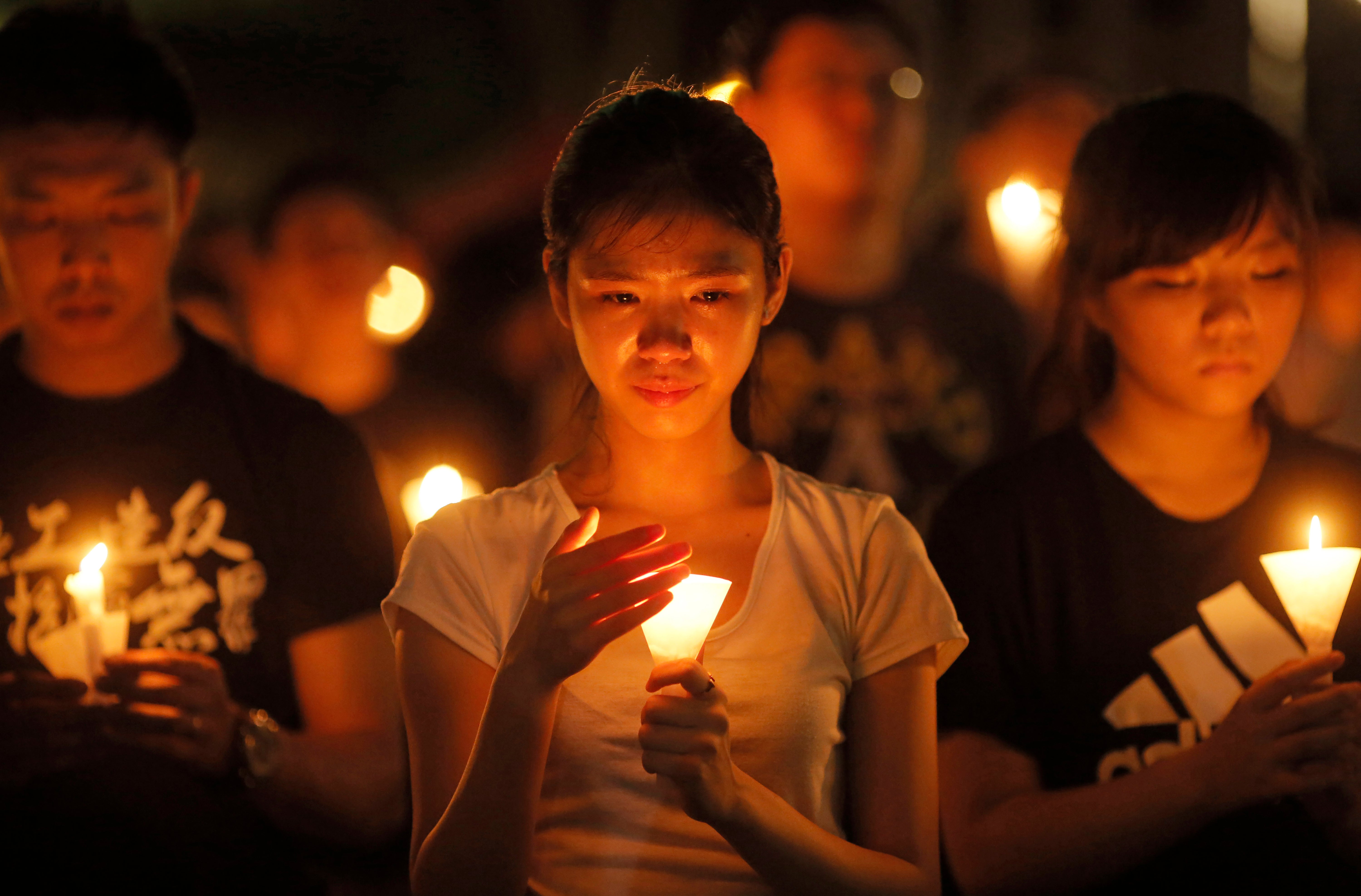Hong Kong June 4 vigil organizers to disband amid crackdown
The Hong Kong group that had organized annual vigils in remembrance of victims of the Chinese military's crushing of the 1989 Tiananmen Square pro-democracy protests has voted to disband amid a crackdown on independent political activism in the semi-autonomous city

The Hong Kong group that had organized annual vigils in remembrance of victims of the Chinese military’s crushing of the 1989 Tiananmen Square pro-democracy protests voted to disband Saturday amid an ongoing crackdown on independent political activism in the semi-autonomous city.
Police had notified the Hong Kong Alliance in Support of Patriotic Democratic Movements of China last month that it was under investigation for working for foreign interests, an accusation the group denied.
While it called the probe an abuse of power, core members voted 41-4 at a meeting on Saturday to lay the 32-year-old group to rest. Tens of thousands of people had attended the annual vigil, until authorities banned it in 2020, citing anti-pandemic measures.
The government investigation came during heavy restrictions on Hong Kong civil society following mass pro-democracy protests in 2019 and the imposition of a sweeping national security law by China’s ruling Communist Party last year. The legislation effectively criminalized opposition and severely limited free speech, while other measures have heavily reduced popular participation in the city's electoral process.
The law, which outlaws subversion, secession, terrorism and foreign collusion to interfere in the city’s affairs, has forced several civil organizations to disband or seen their ties to the government cut. More than 100 pro-democracy activists have been arrested under the law, including leaders of the Hong Kong Alliance, while other opposition figures have sought asylum abroad or been intimidated into silence.
In August, the prominent Hong Kong Civil Human Rights Front, made up of a slew of member organizations, said it could no longer operate and chose to disband. The group helped organize large protests in 2019, which grew increasingly violent as mostly young demonstrators battled police.
The annual vigil had honored those who died when China’s military violently suppressed massive pro-democracy protests in Beijing’s Tiananmen Square on June 4, 1989.
The topic has long been taboo in mainland China and Hong Kong had been the only place in the country allowed to hold such a commemoration. Smaller crowds gathered this year and in 2020 despite the police ban.
Police had asked the alliance to hand over any information about groups they had worked with overseas or in Taiwan — the self-governing island democracy China claims as its own territory — as well as contact information. They did not mention what specific incidents prompted the investigation.
Critics say the national security law restricts freedoms Hong Kong was promised it could maintain for 50 years following the territory’s 1997 handover to China from colonial Britain.
In an emailed statement, Amnesty International’s Asia-Pacific Director Yamini Mishra said “the effectively forced disbandment” of the alliance showed the Chinese authorities were seeking to censor all mention of the crackdown in Hong Kong as it has on the mainland.
“After the recent demise of some of Hong Kong’s largest unions and the group organizing some of the city’s largest protests, it is clear the Hong Kong government is targeting civil society groups with broad support and the capacity to mobilize," Mishra said. “Worryingly, the government’s crackdown on such organizations seems likely to continue."
Bookmark popover
Removed from bookmarks